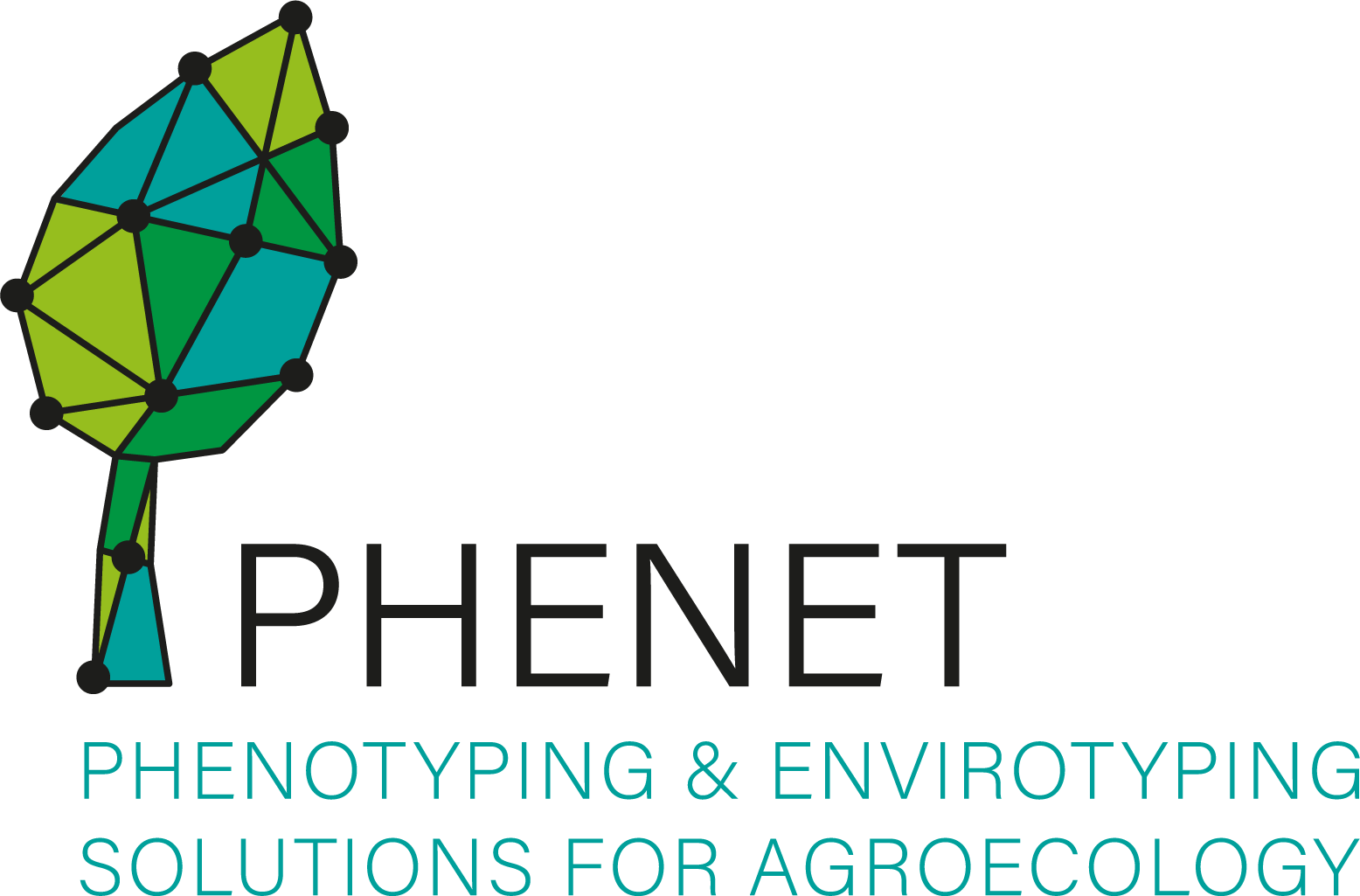PHENET webinar series
The European Research Infrastructures (RI) on plant phenotyping (EMPHASIS), ecosystems experimentation (AnaEE), long-term observation (eLTER) and data management and bioinformatics (ELIXIR) join their forces in the EU funded project PHENET to codevelop next generation of tools, methods for the development of crop varieties, agricultural management practices to face future climatic scenarios across Europe and accompany agroecological transition. These tools are tested in a range of use cases addressing specific scientific questions and will result in new services that will be implemented and available within the RIs involved in PHENET. With this webinar series we provide an overview of the nine PHENET use cases, we address their scientific questions, present the tools that will be developed and provide a platform for a discussion and exchange with different stakeholders from academia and industry. Each webinar will include multiple speakers addressing a methodological section with presentation of latest developments in hardware, software, modelling solutions followed by applications of these methods to address relevant scientific questions illustrating how next generation phenotyping and envirotyping tools and methods can help to analyse different facets of the soil component, to explore the complex biotic interactions in agroecosystems, to decipher the complex genotypes by environment interaction, and to foresee how these tools and methods can be used to assess crops and forests across scales.
To register, please click on the seminars you would like to attend!
Seperate registration for each webinar is requiered:
Topic: assessment of crops and forests performance across scales | 22nd Nov 14:00 – 16:00 CEST | online via zoom | |
Topic: biotic interaction in agroecosystems | 29th Nov 14:00 – 16:00 CEST | online via zoom | |
Topic: genotypes x environment interactions across scales | 06th Dec 14:00 – 16:00 CET | online via zoom | |
Topic: digging into the complexity of soil components | 13th Dec 14:00 – 16:00 CET | online via zoom |
Download PHENET webinar series (pdf)
22nd of Nov, 14:00 – 16:00 CET
Speaker: | |
|---|---|
Bertrand Muller, INRAE | Introduction of PHENET and the webinar |
Xavier Draye, UCLouvain | Earth observation services and proxy-detection for Research Infrastructures |
Laurent Saint-Andre, INRAE | The case study of the Doller valley shows the need to integrate proxy and remote sensing, field data, socio-economic issues and modelling for a low-carbon territory |
Arthur Monhonval, Soil Capital | Farms 2 Platforms: phenotyping capabilities of RI to support innovation towards the agroecological transition at the farm level |
29th of Nov, 14:00 – 16:00 CET
Speaker: | |
|---|---|
Bertrand Muller, INRAE | Introduction of PHENET and the webinar |
Cyril Pommier, INRAE | Open Science services for data management, integration, sharing and modeling |
David Rousseau, University Angers | Adaptable phenotyping devices with AI embedded targeted towards agroecological traits |
Philipp Vermeulen, CRA-W | Plant Health: Validated sensors and methodology applicable for biotic stresses in wheat |
Madhuri Paul, University Bonn | Intercropping in Europe: a systematic mapping study of arable grain crops |
Oliver Schweiger, UFZ | Multiple sensors in sentinel bumble bee colonies to disentangle and predict multiple pressures on bee health |
6th of Dec, 14:00 – 16:00 CET
Speaker: | |
|---|---|
Bertrand Muller, INRAE | Introduction of PHENET and the webinar |
Ioannis Athanasiadis, WUR | Simulation intelligence services |
David Rousseau, University Angers | Adaptable phenotyping devices with AI embedded targeted towards agroecological traits |
Raul Lopez-Lozano, INRAE | Model-assisted wheat phenotyping to predict genotype performance and adaptation to future environmental conditions |
Walter Guerra, Laimburg | High throughput phenotyping on apple |
13th of Dec, 14:00 – 16:00 CET
Speaker: | |
|---|---|
Bertrand Muller, INRAE | Introduction of PHENET and the webinar |
Ines Chaves, ITQB Miguel Cisneiros, BIODATA | Building on Soil Ontologies |
Ilja Reiter, CNRS | Soil in ecological & agroecological settings |
Hans Sanden, BOKU Akos Akos-Etele Csibi, BOKU Paval Baykalov, BOKU | In-situ subsurface soil properties estimation with Vis-NIR spectroscopy |
Nadia Soudzilovskaia, University Haselt | Towards understanding soil phenology |
Stay tuned to our PHENET communication channels (website, linked). This webinar series will be followed by further webinars providing concrete insights into the latest technologies and tools being developed by the project.
In PHENET, EMPHASIS, AnaEE, eLTER, and ELIXIR join forces to co-develop, with a diversity of innovative companies, new tools and methods – meant to contribute to new RI services – for the identification of future-proofed combinations of species, genotypes, and management practices in front of the most likely climatic scenarios across Europe. IPPN is an association representing the major plant phenotyping centers, aiming to provide all relevant information about plant phenotyping to increase the visibility and impact of plant phenotyping and enable cooperation between different stakeholders.


